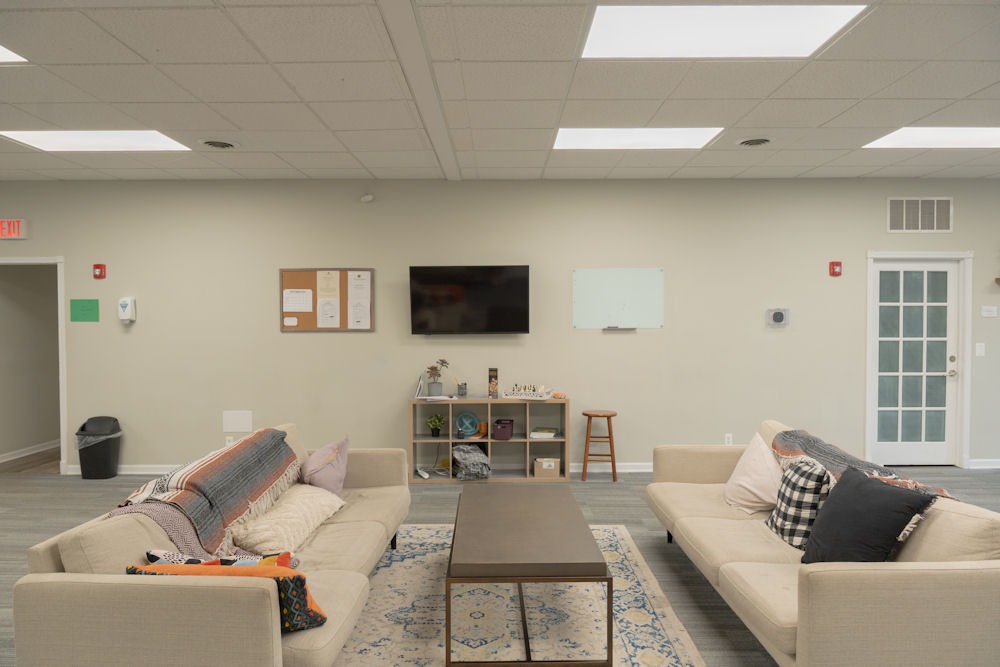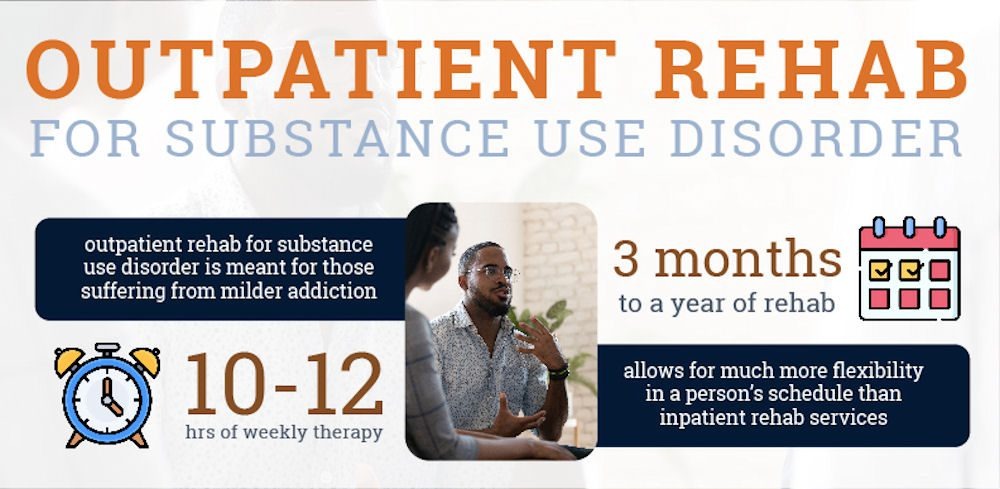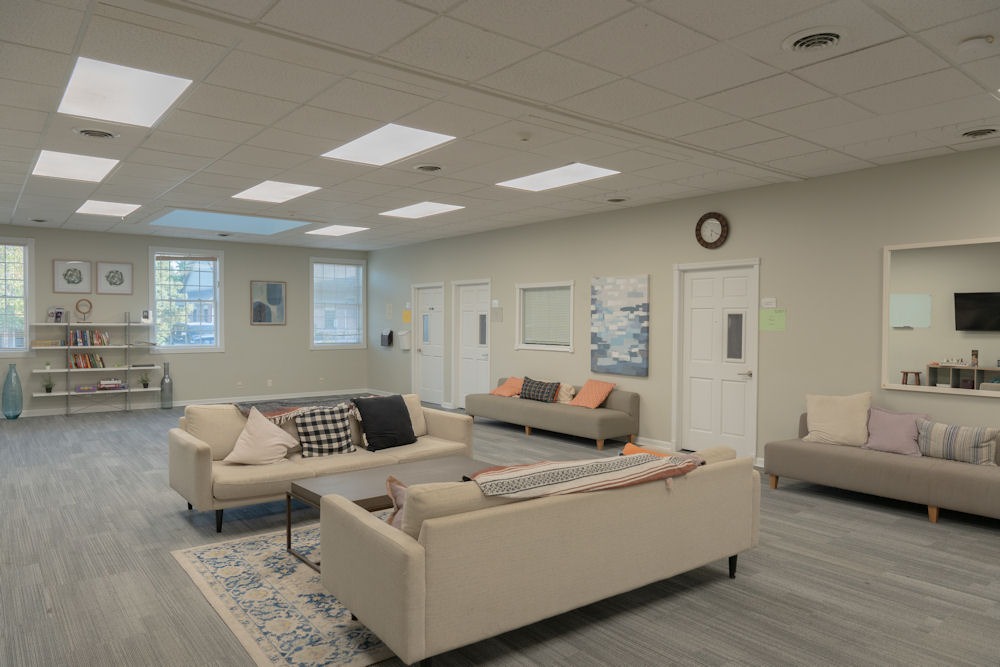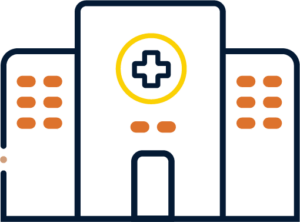At Northern Illinois Recovery Center, we understand that every individual’s needs are different. That’s why our outpatient programs are designed to help those with mild to moderate substance use or mental health concerns build resilience, repair relationships, and develop real-world coping skills. From intensive outpatient programs (IOPs) to standard outpatient therapy, we offer multiple levels of care tailored to support lasting recovery.
If you or a loved one is seeking a practical, effective treatment option, outpatient rehab could be the right choice. Explore how our programs work, who they benefit, and what makes them different from inpatient care—then take the first step toward a healthier, more fulfilling life.

This approach is ideal for those with mild to moderate addiction or mental health concerns, offering a balance between intensive care and independence. Outpatient care provides the tools and guidance needed for recovery, making it a valuable step in alcohol addiction treatment while allowing patients to apply what they learn in real-world settings.
What are the Benefits of Outpatient Care?
One of the primary benefits of attending an outpatient drug treatment program is that patients can put into practice what they learn in therapy. Some people grow complacent in a residential treatment program. After all, it seems easy to stay sober when the only people they meet are also working towards recovery. However, once these individuals leave treatment and face daily stresses, struggles, and temptations, they feel less sure of themselves.
For instance, if a person is living with people who are using drugs or alcohol continuously, they may feel like they need to use drugs or alcohol to fit into the house. Our outpatient program can help patients work through these challenges, continually adding to their repertoire of strategies and coping mechanisms.
Outpatient treatment programs also allow patients to renew their relationships with their loved ones. Drug and alcohol addiction damages many relationships, especially if people feel they have to lie or steal to fund their dependency. An outpatient drug rehab encourages patients to attend family therapy to overcome their challenges.
Mental health disorders commonly occur alongside substance use disorders. When an individual has a co-occurring disorder, they need dual diagnosis treatment, which our outpatient program can provide. Rigorous, specialized treatment can help heal both disorders and promote long-lasting recovery.
Who Should Consider Outpatient Drug Treatment Centers?
Though preference is important in regards to which rehab treatment program you choose, it’s important to consider medical advice. During our admissions process, we can help you understand which program is best for you based on your needs. Reach out to our team to learn whether you’re a candidate for our outpatient treatment program.
What Can an Outpatient Drug Rehab Center Treat?

Alcohol IOP
An alcohol IOP can be highly beneficial for many individuals. For those who do not require 24/7 monitoring, intensive outpatient treatment allows for a flexible, but meaningful, recovery. Interestingly, the added responsibility for maintaining sobriety in an outpatient setting can help the individual develop tools they will use for the rest of their life.
Drug IOP
A drug IOP functions the same as an alcohol IOP. Intensive outpatient treatment is a common level of care for both alcohol and drug addiction. At Northern Illinois Recovery Center, we focus specifically on the individual and differentiate treatment depending on the substances involved.

What is the Difference Between Inpatient and Outpatient?
The main difference between inpatient and outpatient programs is that individuals attending inpatient treatment will live at the rehab. Alternatively, those in outpatient programs may leave after treatment is done for the day. That doesn’t mean that all outpatient programs provide less care than inpatient rehab. For instance, a partial hospitalization program requires patients to commit to several hours of treatment for most of the week.

While inpatient and outpatient rehab programs may look similar, outpatient programs require fewer resources for the facility. Individuals in an inpatient rehab need places to sleep, multiple meals a day, 24/7 supervision, utilities, and more. This drives up the cost of treatment overall.
Many insurance plans cover outpatient treatment programs. Some insurance plans will pay for all of this treatment instead of only part of it. As a result of this, many people are more likely to seek treatment.
Inpatient programs are typically divided into standard inpatient and residential treatment. A standard inpatient program offers one of the highest levels of care. Residential programs are a step-down, allowing visitors and more recreational time.
Alternatively, outpatient rehab may offer three levels of care:
- Partial hospitalization programs (PHPs)
- Intensive outpatient programs (IOPs)
- General outpatient programs (OPs)
PHPs, as said before, are one of the highest levels of care at an outpatient rehab. Intensive outpatient programs also require a high level of time commitment, but less than PHPs.
So, intensive outpatient treatment may act as a step down from PHP, but not as initial treatment. A standard outpatient rehab program requires a few hours of commitment each week, making it the best choice for those who have completed intensive outpatient treatment.
Outpatient Treatment FAQs
After an initial assessment, we can then schedule a consultation and intake assessment. During this assessment, we’ll go over the individual’s history of drug or alcohol use, determine whether they’re battling a mental health condition, and decide if they’re a candidate for our outpatient treatment program. Once we’ve completed this exam, we can begin the outpatient rehab treatment process.
Outpatient rehabs in Northern IL only require the client to do three things: stay clean, abide by schedules and rules, and show continual progress towards recovery. As a precaution, we also reserve the right to recommend alternative treatment options for clients who are struggling with substance abuse. The last thing anyone wants to see is the client going into relapse and disappearing from treatment. If they require additional support, we have to take steps to deliver recovery.
Sober living is a program in which patients move into rehab-sponsored houses that ban all substances to help individuals prevent relapse. With a combination of an outpatient treatment program and a sober living program, they can increase the likelihood of staying sober.
Many of the people at our outpatient treatment program take part in our sober living program. This treatment option is ideal for those whose home environments are not conducive to sobriety. For instance, those living with other people who use drugs or alcohol may not stay sober for long periods.
Yes, young adults can receive outpatient treatment for mental health and substance abuse. We offer specific programs for teen mental health. Outpatient treatment is particularly helpful for young adults as the program allows them to attend school as usual and participate in treatment in the evenings and during weekends.
Yes, most outpatient rehab programs are covered by insurance, including private plans, Medicaid, and Medicare. The Affordable Care Act (ACA) requires insurers to provide coverage for mental health and substance use treatment, including outpatient care. However, coverage varies by plan; some may require pre-authorization, limit sessions, or only cover in-network providers. We verify benefits and work with insurers to maximize coverage. High-deductible plans or out-of-network care may involve out-of-pocket costs. Contact our admissions team for a free insurance verification to confirm your specific coverage and explore payment options if needed. Treatment should be accessible, and we’re here to help.
After patients complete our outpatient treatment program, patients transition to aftercare treatment, which involves relapse prevention care and our alumni program. This allows individuals to feel supported as they transition from outpatient care. We also recommend that patients continue individual therapy to maintain positive mental health and sobriety.





